Alan Cumming: ‘I don’t mind when straight people play gay people if they play it authentically’
The Tony and Oliver Award-winning actor discusses the debate around ‘playing gay’ in Hollywood and learning lessons from the past in his latest memoir, Baggage: Tales from a Fully Packed Life.
By Will Stroude
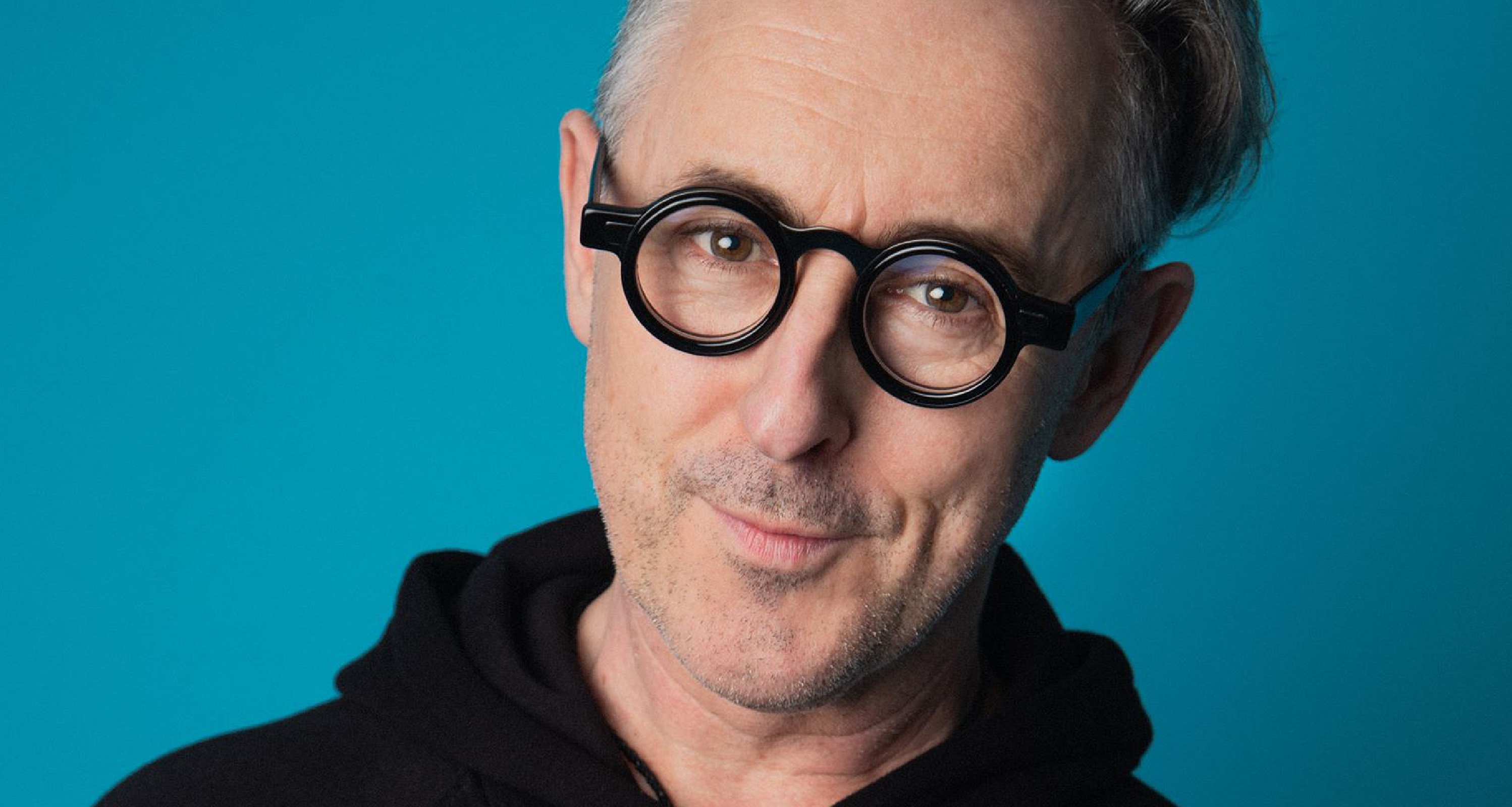
Words: Thomas Stichbury; Images: Joshua Going
Scottish actor, singer and writer Alan Cumming OBE says the biggest reward to come from putting pen to paper is being able to share his story and connect with people, whoever and wherever they are in the world. So, it is ironic that for the first five minutes of our video call interview I am unable to connect with Alan. The wi-fi is as up and down as my mood swings if I’ve forgotten to pop a Valium, and with the screen spluttering and juddering, neither of us knows if we are, ahem, Cumming or going. Eventually, the signal settles.
The Tony and Oliver Award-winning stage and screen star is here to talk about his latest memoir, Baggage: Tales from a Fully-Packed Life – following on from 2014’s Not My Father’s Son – and there is a lot to unpack, from his difficult childhood growing up with an abusive father and the breakdown of his first marriage to a woman, to his glittering career as one of the industry’s most versatile queer artists (Spiceworld remains his finest work, obvs), and a lengthy spell as a prolific butter-dish thief. Butter fingers indeed…
After reading Alan’s new tome in a single day, one particular anecdote stays with me: the 56-year-old’s pet peeve at being asked repetitive, run-of-the-mill questions by journalists. No pressure…
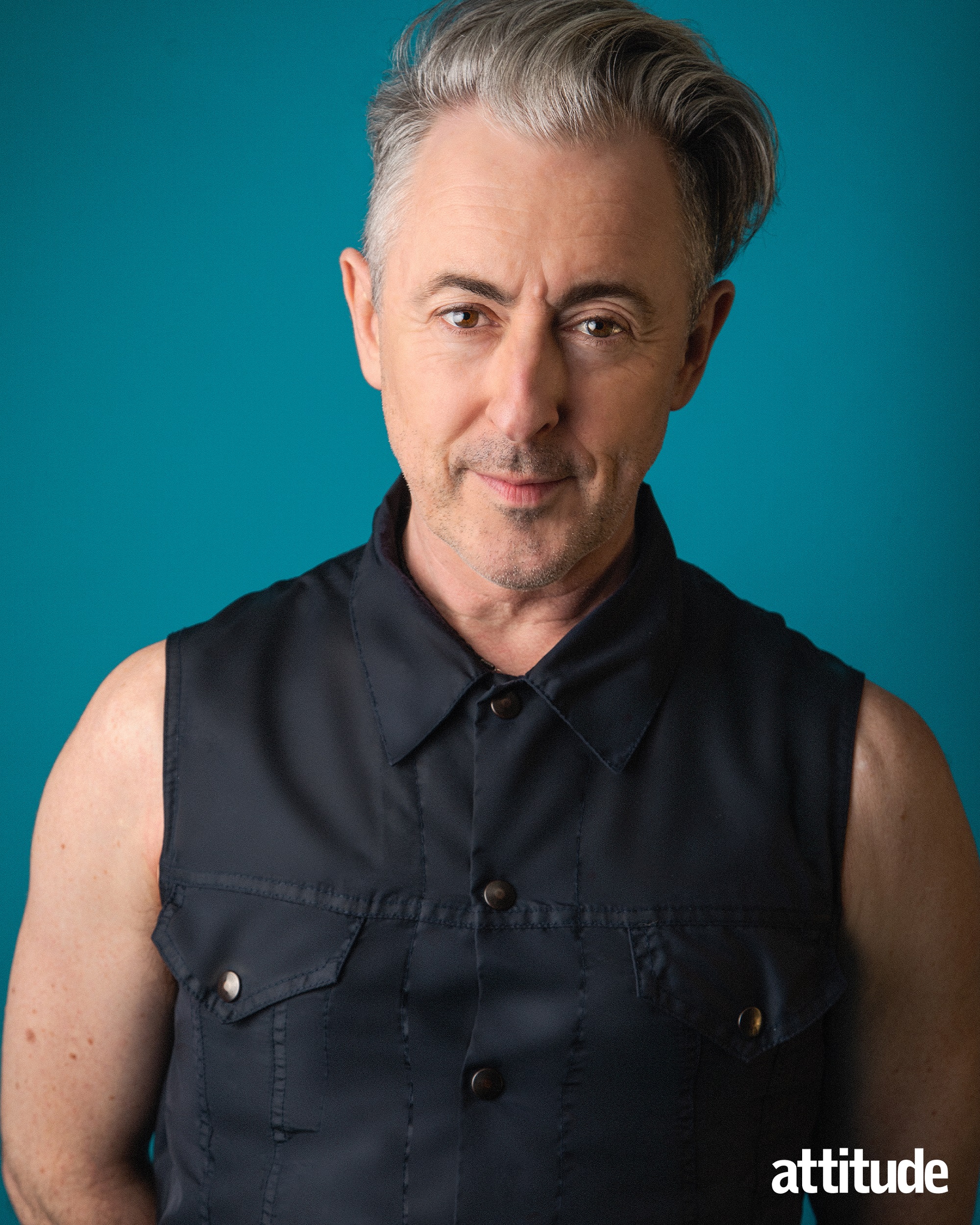
I finished your book at the weekend and it’s great. But not going to lie, I was a bit nervous preparing for today’s interview because, in it, you write about doing press junkets and having to answer the same questions over and over again.
You’re my first one [today]. I’ve not done many interviews, so you’re in the early stages yet. You’ve got me still quite fresh and not so jaded [laughs].
Phew. OK, my first question… just how many butter dishes have you pinched over the years?
I have no desire to steal a butter dish. That’s my butter dish career gone. Maybe that’s not true, I did steal one from the Balmoral with Caroline Thompson, the writer; she and I went on a trip years ago and I stole one of those ones with the silver lid. Now I’m over it because I don’t eat butter anymore!
Given the name of your new memoir, what is the most unusual item you have transported in your luggage?
On the way back from Scotland last week I transported a brick. I was given a brick by the person who now owns the childhood house that I was brought up in… I’ve also transported a bit of cornice-ing from the balcony of Studio 54.
How would you describe Baggage: Tales from a Fully Packed Life?
It’s a memoir of someone who is being very frank about their life and career. It’s hopefully an honest, myth-dispelling, fun read. I don’t want people to buy into the Hollywood ending.
It is easy to presume that people who have – not everything – but more than the average person don’t experience things like anxiety and depression. More public figures are being open about their struggles, mind.
You’re right. It doesn’t actually matter what you have; the idea of, they have it all, doesn’t really follow. The more I’ve been honest about what I think and feel and how I live and what has happened to me, the more I feel connected with people, and I definitely feel the more I’ve helped people. Since the Not My Father’s Son book [was published] I’ve realised how much of an effect you can have on people… it’s been a revelation for me.
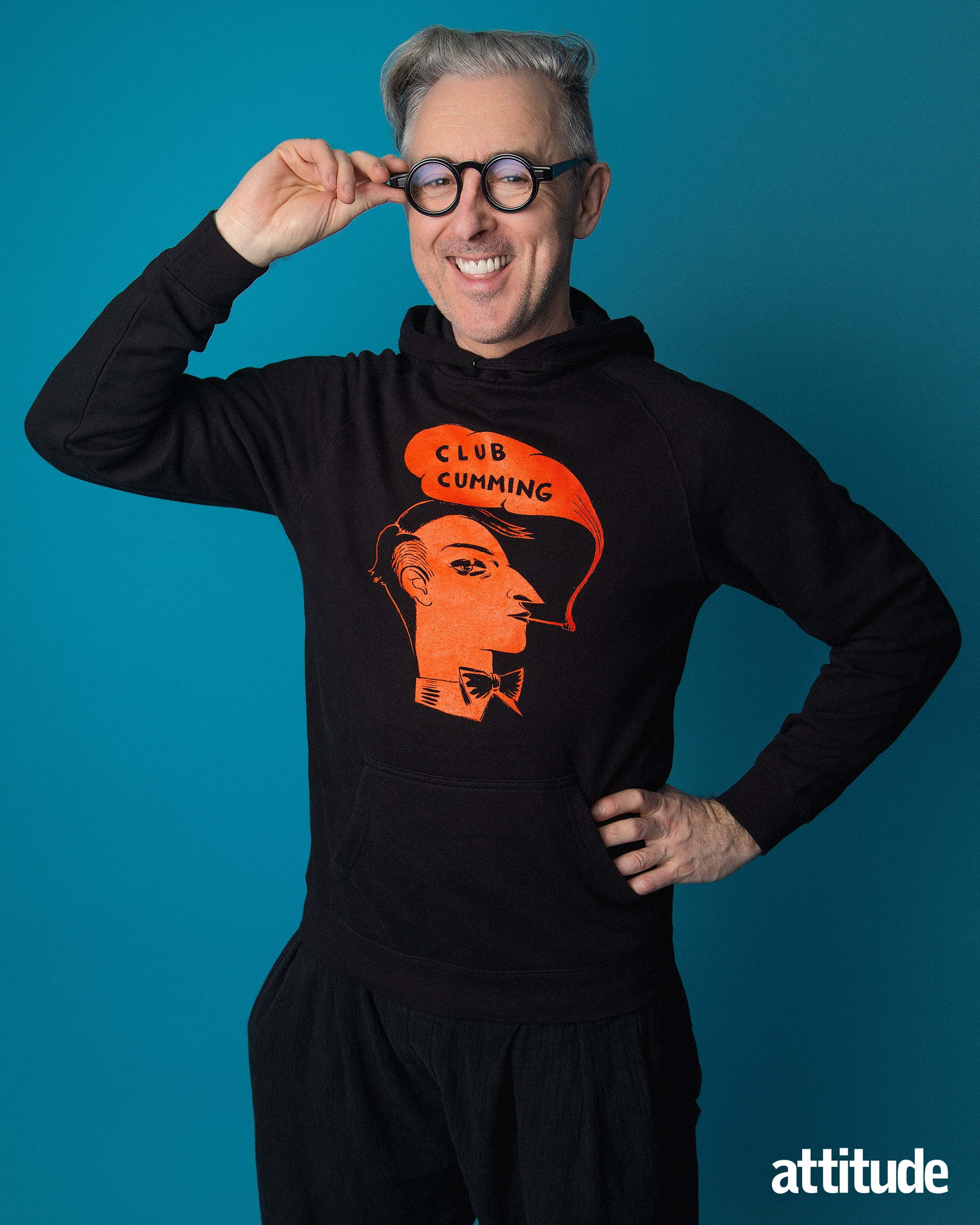
In Not My Father’s Son, you address your relationship with your dad and being a victim of abuse. How much of a weight off your shoulders was it to write about your childhood and what you’d been through?
The book came out in 2014, I think, and still, every day I get something on Twitter or Instagram, a message; sometimes in phases, I don’t know, maybe they have special offers [in shops] and they sell more copies [laughs]. It’s a variety of things, people wanting – talking to their abusers, talking about things in their family, or just being more self-confident and daring in their lives. There is a woman in Israel who keeps in touch with me, and she said that she had a stillborn child and that it was only after reading my book she thought she could actually talk about that.
I had to get it off my chest. I was mostly worried about how it would affect my mum and brother, in terms of the level of interest it might cause them. That was all great. They blossomed from it and were proud of it; I literally saw them at events getting a round of applause, people saying, “We’re so happy that you’re supportive of this.” For something that was very shameful, you know, when you’re abused, you’re ashamed of being abused and being in that situation. So, something that was very shameful in our lives turned out to be this very positive thing. I didn’t expect that.
Do you give people a head’s up that you are going to be writing about them, whether it is a former partner, like Adonis, or your ex-wife?
I did some of them. The ones I’m more in touch with. Adonis, I’ve written about before, and I haven’t spoken to him for a while. I probably told him that I was writing a memoir, but I didn’t show him – like my ex-fiancée, I showed her the bits that she was in… I didn’t speak to my ex-wife about it. We haven’t seen each other for a while, but I feel that’s not – with some people, I think, you know, you understand people’s concerns. I’ve showed a couple of people, even people who weren’t lovers or anything, I said, “I’m writing this, is this what your memory of it was?” I did that, but I’m not completely diligent with every single person in the book. I feel like with some people it would be inappropriate, and it’s my memory of it as well, do you know what I mean, I don’t necessarily want everyone’s version. Everything I’ve written in the book, I’ve tried to make it about what I’ve learned from the experience, not to be catty. It’s not a revenge thing… There were things that I left out, obviously, and even some of the people who are in it come off much better than they were [laughs].
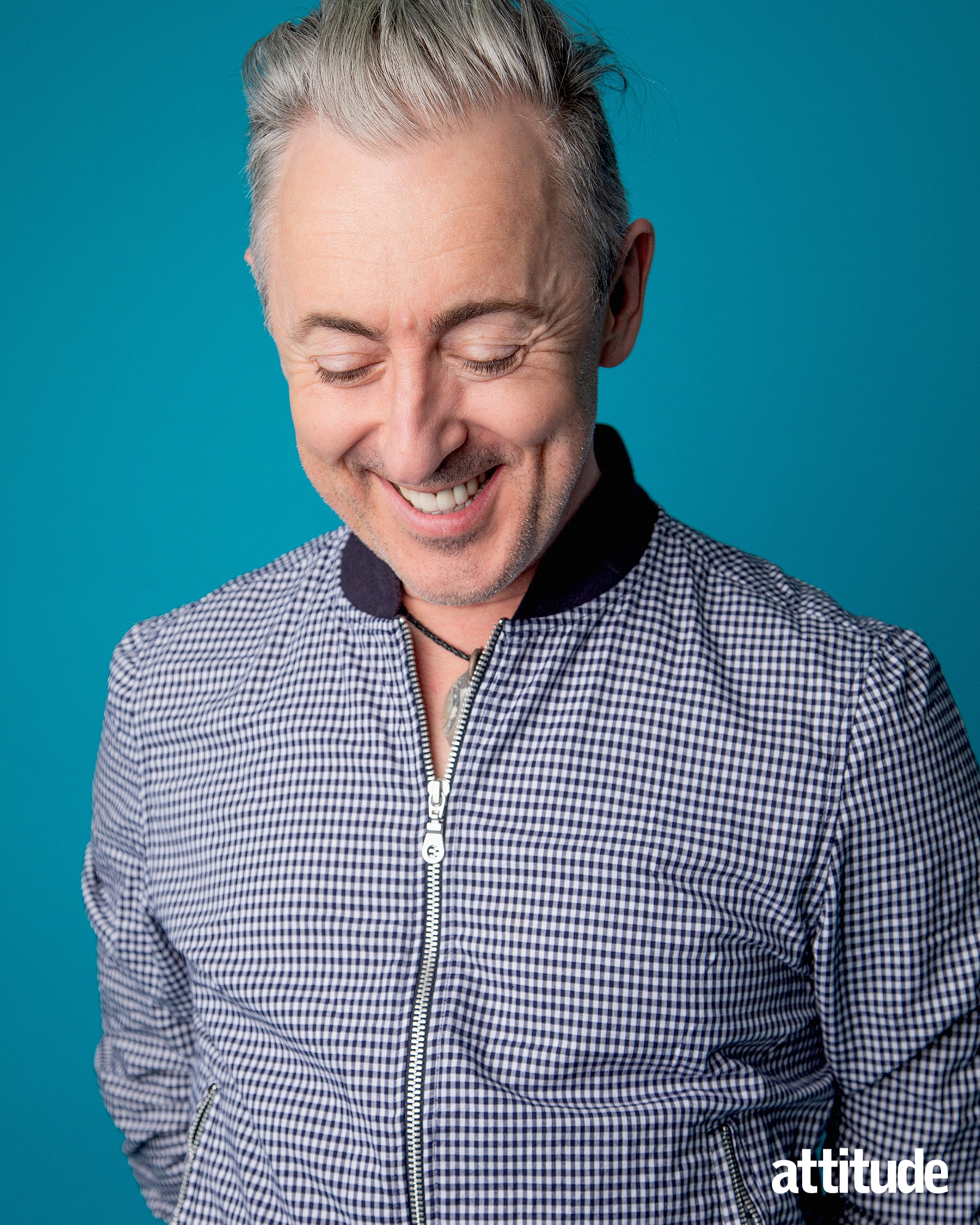
What do you get from the process of writing?
It’s that thing about connecting. This is a very direct connection because I’m talking about myself, and I really like that I can; the more and more – I mean, I’ve got a tattoo on my arm [Alan shows me his ‘Only Connect’ tattoo.’ I like that aspect of [writing], things that you have in your life and you make them into art.
Are you planning on getting a tattoo of your catchphrase ‘Still Alive’?
Maybe [laughs]. I feel like that would be tempting fate, wouldn’t it? It’s like when you get somebody’s name and then of course you break up. So, I think ‘Still Alive’, I’d probably be dead the next week and then all the obituaries would be about my tattoo irony!
Which chapters of your life did you most and least enjoy unpacking?
My former fiancé, we’re great friends now, she’s one of the people in my life who was, you know, my partner and we’re still in each other’s lives very much. But going back to that and seeing – any break-up is difficult and painful. I have learned the kindness of a clean break, because neither of us did that; it took a long time. There’s another relationship that wasn’t in the book that was just so difficult, so yes, seeing yourself writing about how distressed you are about just being with someone else is really awful, whatever reason.
You’ve mingled with everybody from Liza Minnelli to Jennifer Lopez. Did any embarrassing showbiz encounters not make the book?
I went through a phase… where I accidentally told other famous people that another famous person had died. Not accidentally, but they didn’t know and so I [was the one who] told them. I was speaking to Liza one day and I told her that Charles Aznavour had died, “Oh, it’s so sad about Charles, I know how much you loved him.” She said, “What? Charles Aznavour’s dead?!” I was like, oh my gosh, she didn’t know. That was awful. Shortly after that, I was the Golden Globes party, and I was talking to Lady Gaga and I went, “Isn’t it awful?” She went, “What?” And I said, “Didn’t you hear? David Bowie’s just died.” She was like, “What?!” And freaked out. I thought, oh, this is becoming a habit, freaking out superstars by being the first person to tell them that somebody else has died that they loved. If anyone’s dead, I [now] try to keep it to myself. We have one more minute, Tom, what’s the question going to be…
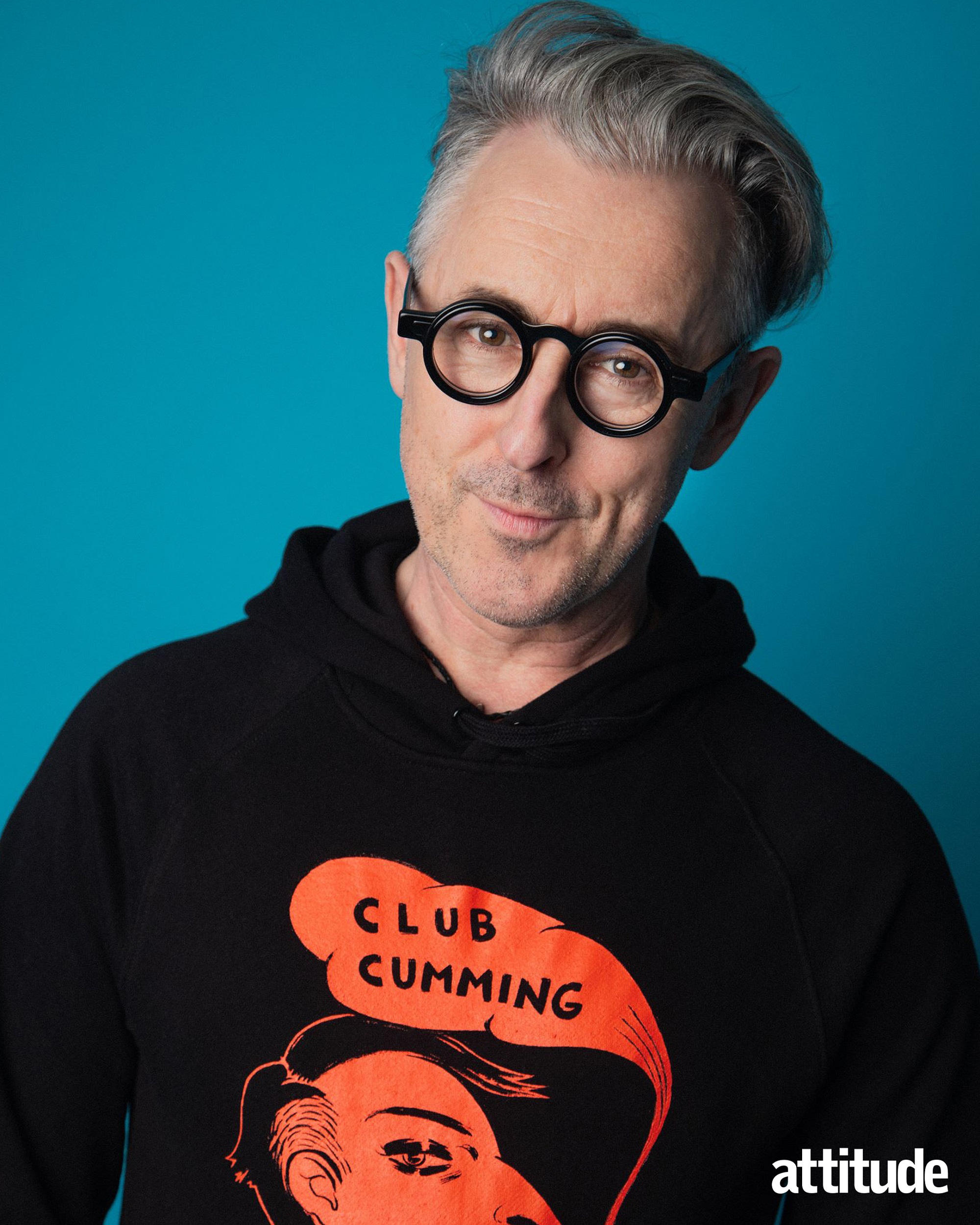
Where do you stand in the ‘debate’ around who should be able to take on LGBTQ+ roles?
I think it’s interesting that the conversation has moved on from about actors coming out to actors playing gay people. At least that’s a positive thing because I always used to think, I don’t want to talk about ‘outing’. The more tension you bring to it, the more the media’s going to talk about it, and actually it shouldn’t matter. I know other closeted people in Hollywood, blah, blah – anyway, I don’t mind so much. What I mind is a bad performance right? I think gayness is different from race or disability in terms of the offence that it can cause for somebody who is not that to play. I have played lots of straight people. I think I should be allowed to play straight people. I don’t mind when straight people play gay people if they play it authentically. If they play it badly, well, there’s lots of gay people out there who could have played this much better. That’s what pisses me off.
The other thing is, it’s important to remember that the reason these straight people play gay people, or the reason why people who are not from a group play [a member of] a group is because the minority doesn’t have enough famous people to be ‘bankable’ stars that the studio deems as important enough to carry a film. That’s what we have to address, the fact that we don’t have enough – that’s been addressed in terms of colour now, which I think is great, but disability and queerness and transness, all these things, we don’t have enough people who are big enough stars for it not to be an issue. That’s what we have to look at, more people being represented. It’s all about representation. That’s the big answer. My short answer is, I don’t really care so long as people do good performances. As someone who plays straight all the time, if I’m not convincing as a straight person, then I shouldn’t get the job.
Last question, promise: who’s your favourite Spice Girl?
Sophie’s choice. I’d have to say Geri because we keep in touch most.
Baggage: Tales from a Fully Packed Life (Canongate) by Alan Cumming is out now.
